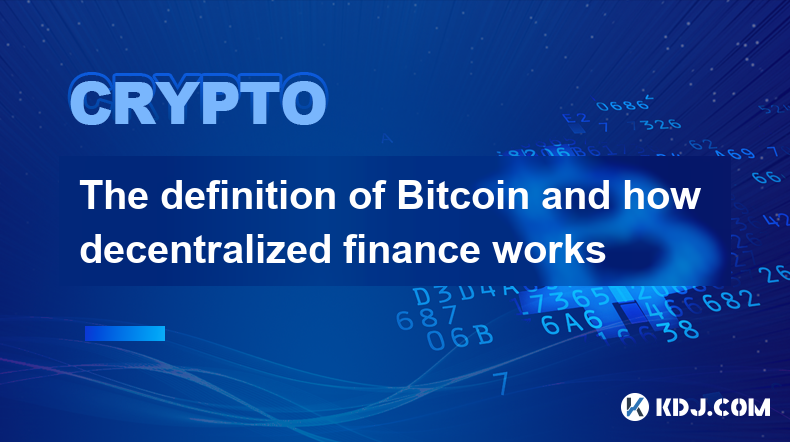-
 Bitcoin
Bitcoin $82,382.7890
8.63% -
 Ethereum
Ethereum $1,641.2351
14.30% -
 Tether USDt
Tether USDt $0.9996
0.04% -
 XRP
XRP $2.0194
13.14% -
 BNB
BNB $578.7191
5.82% -
 Solana
Solana $117.2636
12.58% -
 USDC
USDC $0.9999
-0.02% -
 Dogecoin
Dogecoin $0.1576
11.63% -
 TRON
TRON $0.2393
4.79% -
 Cardano
Cardano $0.6222
11.65% -
 UNUS SED LEO
UNUS SED LEO $9.3819
2.37% -
 Chainlink
Chainlink $12.4295
14.50% -
 Toncoin
Toncoin $3.0759
2.88% -
 Avalanche
Avalanche $18.2445
12.64% -
 Stellar
Stellar $0.2373
7.30% -
 Sui
Sui $2.1940
13.81% -
 Hedera
Hedera $0.1688
15.37% -
 Shiba Inu
Shiba Inu $0.0...01183
10.74% -
 MANTRA
MANTRA $6.8029
8.92% -
 Bitcoin Cash
Bitcoin Cash $299.9535
11.17% -
 Litecoin
Litecoin $75.1862
8.30% -
 Polkadot
Polkadot $3.5839
5.09% -
 Dai
Dai $1.0000
0.00% -
 Bitget Token
Bitget Token $4.3353
6.12% -
 Ethena USDe
Ethena USDe $0.9989
0.03% -
 Hyperliquid
Hyperliquid $13.8110
16.03% -
 Pi
Pi $0.5986
7.26% -
 Monero
Monero $203.8121
4.21% -
 Uniswap
Uniswap $5.3052
12.19% -
 OKB
OKB $53.4436
6.75%
Can fixed investment in Bitcoin reduce costs?
DCA in Bitcoin involves regular fixed investments to mitigate risk, potentially reducing average cost by averaging purchase price over time.
Mar 28, 2025 at 09:49 am

Understanding Cost Averaging in Bitcoin
Fixed investment, also known as dollar-cost averaging (DCA), in Bitcoin involves investing a fixed amount of money at regular intervals, regardless of the price. This strategy aims to mitigate the risk of investing a lump sum at a market peak. By consistently buying Bitcoin, you average your purchase price over time. This can potentially reduce the overall average cost per Bitcoin compared to making a single large purchase at a high price point. However, it doesn't guarantee lower costs than perfectly timing the market, which is practically impossible.
How Does DCA Potentially Reduce Costs?
Imagine investing $100 weekly into Bitcoin. If the price is high one week and low the next, your average cost per Bitcoin will be lower than if you'd invested $700 all at once during a price surge. The strategy leverages the inherent volatility of Bitcoin. High price periods mean you buy fewer Bitcoins, while low price periods allow you to acquire more. This averaging effect smooths out the impact of price fluctuations. It’s crucial to remember that this is a strategy to manage risk, not a guaranteed profit mechanism.
Factors Affecting Cost Reduction with DCA
Several factors influence the effectiveness of DCA in reducing costs. The length of your investment period plays a significant role. Longer periods generally provide more opportunities to average out price fluctuations, potentially leading to a lower average cost. Market volatility also impacts the effectiveness of DCA. In highly volatile markets, the potential for cost reduction is greater, but so is the risk of missing out on significant price drops. Your chosen investment interval also matters. More frequent investments offer more opportunities to benefit from price dips, but also incur more transaction fees.
Practical Application of DCA for Bitcoin Investment
Implementing a DCA strategy for Bitcoin is relatively straightforward. Many cryptocurrency exchanges offer automated recurring buy orders. This feature allows you to schedule automatic purchases of Bitcoin at predetermined intervals and amounts, simplifying the process significantly. You can set it and forget it, ensuring consistent investment even when the market is volatile. Alternatively, you can manually purchase Bitcoin at your chosen intervals. This provides more control but requires more active management.
- Choose your investment amount: Decide how much you can comfortably invest regularly.
- Select your investment interval: Determine how often you want to buy Bitcoin (weekly, bi-weekly, monthly, etc.).
- Set up your recurring buy order (or manual purchases): Utilize your exchange's features or manually purchase Bitcoin according to your schedule.
- Monitor your investment: Track your average cost per Bitcoin and your overall portfolio performance. This allows for adjustments if needed.
- Maintain discipline: Sticking to your chosen investment plan is crucial for the success of a DCA strategy. Avoid emotional decisions based on short-term market fluctuations.
Risk Mitigation with DCA
While DCA can potentially reduce your average cost, it's not a risk-free strategy. You still face the risk of Bitcoin's price declining over your entire investment period. This means you could end up with a lower average cost but still experience losses. Furthermore, DCA doesn't eliminate the risk of market downturns; it simply aims to mitigate the impact of buying high. It's crucial to only invest what you can afford to lose.
Transaction Fees and their Impact
Transaction fees associated with each Bitcoin purchase can eat into your returns. High transaction fees can negate some of the benefits of DCA, especially with more frequent investments. Choosing an exchange with low transaction fees is therefore crucial for maximizing the effectiveness of your DCA strategy. Consider the cumulative effect of transaction fees over the long term when planning your investment.
Emotional Discipline and DCA
One of the biggest challenges with DCA is maintaining emotional discipline. It's tempting to deviate from your plan when the market is moving against you. Fear of missing out (FOMO) can lead to impulsive decisions, while panic selling during downturns can disrupt the averaging effect. A well-defined investment plan and a long-term perspective are essential for successfully implementing a DCA strategy.
Comparing DCA with Lump Sum Investments
A lump-sum investment involves investing a large amount of money at once. This strategy offers the potential for higher returns if the market rises, but carries a higher risk of significant losses if the market falls. DCA, on the other hand, offers a more conservative approach, mitigating risk but potentially sacrificing some upside potential. The best strategy depends on your risk tolerance and investment goals.
Long-Term Perspective and DCA
DCA is a long-term investment strategy. It's designed to work over extended periods, allowing the averaging effect to smooth out price fluctuations. Short-term market movements should not influence your DCA plan. Patience and discipline are key to reaping the potential benefits of this strategy. Focus on your long-term goals rather than short-term price fluctuations.
Frequently Asked Questions
Q: Is DCA guaranteed to reduce my average cost of Bitcoin?
A: No, DCA doesn't guarantee a lower average cost than perfectly timing the market, which is impossible. It aims to mitigate the risk of buying high, but the price could still decline overall during your investment period.
Q: How often should I invest using DCA?
A: The frequency depends on your risk tolerance and investment goals. Weekly or monthly investments are common, but you can choose any interval that suits you. More frequent investments offer more averaging opportunities but incur more transaction fees.
Q: What if Bitcoin's price keeps falling?
A: Even if the price keeps falling, DCA still helps to mitigate losses by averaging your purchase price over time. However, you should only invest what you can afford to lose. It is important to stick to the plan, and not panic sell.
Q: Can I use DCA with other cryptocurrencies besides Bitcoin?
A: Yes, DCA can be applied to any cryptocurrency or asset. The principles remain the same: regular investments at fixed intervals, regardless of price.
Q: Are there any downsides to DCA?
A: Yes, DCA doesn't eliminate the risk of losses, and transaction fees can eat into your returns. It also potentially misses out on significant gains if the price rises sharply. It requires discipline and a long-term perspective.
Disclaimer:info@kdj.com
The information provided is not trading advice. kdj.com does not assume any responsibility for any investments made based on the information provided in this article. Cryptocurrencies are highly volatile and it is highly recommended that you invest with caution after thorough research!
If you believe that the content used on this website infringes your copyright, please contact us immediately (info@kdj.com) and we will delete it promptly.
- Ethereum (ETH) Underperforms Bitcoin (BTC)
- 2025-04-10 10:25:14
- Bitcoin Surges Above $82,000 on Tariff Pause, XRP Rallies on ETF Launch
- 2025-04-10 10:25:14
- OKX Expands Its Offerings with the Launch of USDT-Margined Perpetual Futures for GRIFFAIN and ZEREBRO
- 2025-04-10 10:20:13
- GameStop Token Price up 30% Amid Bitcoin Adoption Approach
- 2025-04-10 10:20:13
- BitMart Review: What is It?
- 2025-04-10 10:15:13
- Rain, a global platform specialising in card issuance through stablecoins, has raised $24.5m in new funding.
- 2025-04-10 10:15:13
Related knowledge

What is Bitcoin halving? Analysis of the impact on prices
Apr 09,2025 at 01:14pm
Bitcoin halving is a pivotal event in the cryptocurrency world that occurs approximately every four years, or every 210,000 blocks. The event is designed to reduce the rate at which new bitcoins are generated, thereby controlling inflation and increasing scarcity over time. During a halving, the reward that miners receive for successfully adding a block...

What to do if Bitcoin is stolen? Security protection and recovery possibilities
Apr 09,2025 at 03:42pm
If your Bitcoin is stolen, it can be a distressing experience, but there are steps you can take to protect your remaining assets and attempt to recover your lost funds. This article will guide you through the process of securing your Bitcoin and exploring recovery possibilities. Immediate Actions After Bitcoin TheftThe moment you realize your Bitcoin ha...

What is Bitcoin fork? Differences between BTC, BCH, and BSV
Apr 10,2025 at 02:21am
A Bitcoin fork refers to a change in the underlying protocol of the Bitcoin blockchain, which results in a divergence into two separate versions of the blockchain. This can happen as a result of a disagreement within the community about the direction of the cryptocurrency, or to introduce new features or improvements. There are two main types of forks: ...

The role of Bitcoin wallets: public keys, private keys and security analysis
Apr 09,2025 at 03:00am
Bitcoin wallets play a crucial role in the world of cryptocurrency, serving as the gateway to securely store, send, and receive Bitcoin. Understanding the intricacies of Bitcoin wallets, particularly the concepts of public keys, private keys, and security analysis, is essential for anyone looking to navigate the cryptocurrency landscape safely and effec...

The definition of Bitcoin and how decentralized finance works
Apr 09,2025 at 03:29pm
Bitcoin, the world's first decentralized cryptocurrency, was created in 2009 by an anonymous person or group using the pseudonym Satoshi Nakamoto. Bitcoin operates on a peer-to-peer network, allowing users to send and receive payments without the need for intermediaries like banks. The underlying technology that powers Bitcoin is called blockchain, a di...

What is Bitcoin? An in-depth analysis of its operating mechanism
Apr 09,2025 at 02:42am
Bitcoin is a decentralized digital currency that was created in 2009 by an unknown person or group using the name Satoshi Nakamoto. It operates on a peer-to-peer network, allowing users to send and receive payments without the need for intermediaries such as banks. In this in-depth analysis, we will explore the operating mechanism of Bitcoin, including ...

What is Bitcoin halving? Analysis of the impact on prices
Apr 09,2025 at 01:14pm
Bitcoin halving is a pivotal event in the cryptocurrency world that occurs approximately every four years, or every 210,000 blocks. The event is designed to reduce the rate at which new bitcoins are generated, thereby controlling inflation and increasing scarcity over time. During a halving, the reward that miners receive for successfully adding a block...

What to do if Bitcoin is stolen? Security protection and recovery possibilities
Apr 09,2025 at 03:42pm
If your Bitcoin is stolen, it can be a distressing experience, but there are steps you can take to protect your remaining assets and attempt to recover your lost funds. This article will guide you through the process of securing your Bitcoin and exploring recovery possibilities. Immediate Actions After Bitcoin TheftThe moment you realize your Bitcoin ha...

What is Bitcoin fork? Differences between BTC, BCH, and BSV
Apr 10,2025 at 02:21am
A Bitcoin fork refers to a change in the underlying protocol of the Bitcoin blockchain, which results in a divergence into two separate versions of the blockchain. This can happen as a result of a disagreement within the community about the direction of the cryptocurrency, or to introduce new features or improvements. There are two main types of forks: ...

The role of Bitcoin wallets: public keys, private keys and security analysis
Apr 09,2025 at 03:00am
Bitcoin wallets play a crucial role in the world of cryptocurrency, serving as the gateway to securely store, send, and receive Bitcoin. Understanding the intricacies of Bitcoin wallets, particularly the concepts of public keys, private keys, and security analysis, is essential for anyone looking to navigate the cryptocurrency landscape safely and effec...

The definition of Bitcoin and how decentralized finance works
Apr 09,2025 at 03:29pm
Bitcoin, the world's first decentralized cryptocurrency, was created in 2009 by an anonymous person or group using the pseudonym Satoshi Nakamoto. Bitcoin operates on a peer-to-peer network, allowing users to send and receive payments without the need for intermediaries like banks. The underlying technology that powers Bitcoin is called blockchain, a di...

What is Bitcoin? An in-depth analysis of its operating mechanism
Apr 09,2025 at 02:42am
Bitcoin is a decentralized digital currency that was created in 2009 by an unknown person or group using the name Satoshi Nakamoto. It operates on a peer-to-peer network, allowing users to send and receive payments without the need for intermediaries such as banks. In this in-depth analysis, we will explore the operating mechanism of Bitcoin, including ...
See all articles





















































































